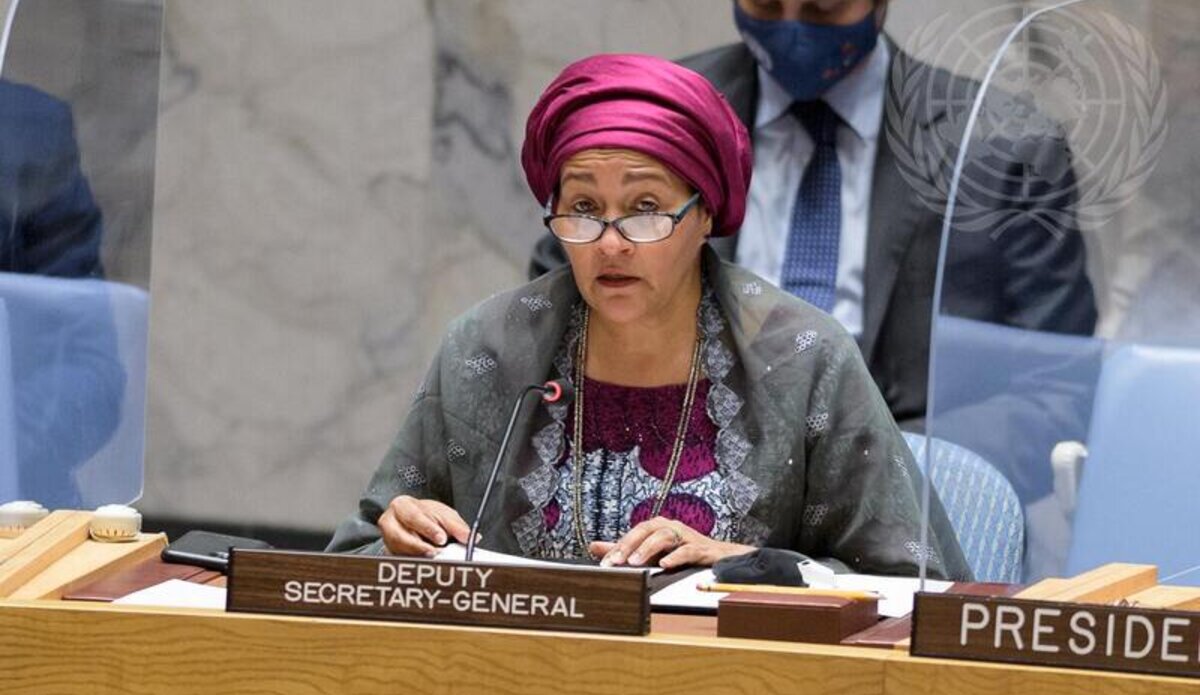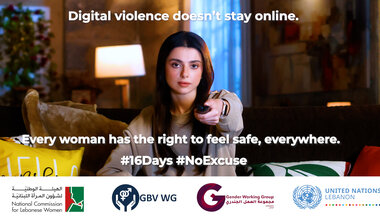Remarks of Deputy Secretary-General Amina Mohamad At The International Conference in Support of the Lebanese People
President Macron, Excellencies,
On behalf of the Secretary-General, let me express appreciation to France for convening this conference and to all partners for your commitment to support the Lebanese people.
Today marks one year since the tragic explosion at the port of Beirut left some 200 people dead and thousands displaced.
Twelve months on, our thoughts are with the families of the victims and the survivors, and all those affected.
We continue to reiterate the need for an impartial, thorough and transparent investigation into the explosion.
Excellencies,
Lebanon is in the throes of one of the worst crises in its recent history. The economy is in freefall, institutions are struggling, basic services are collapsing, society is fracturing, and the population is in dire need.
The people of Lebanon have endured nearly a year without a government.
Under the leadership of Prime Minister-designate Najib Mikati, we look to the rapid formation of a government to implement reforms and tackle the crises.
The Lebanese people deserve strong institutions that can deliver relief, justice and redress —and a government of national interest that can pursue an ambitious course for reforms and restore stability, growth and the prospects for a democratic future that provides opportunities and taps into the full potential of Lebanon’s young women and men.
Today’s conference focuses on the urgent needs of all people in Lebanon.
Over half of Lebanese people now live in poverty.
One in three Lebanese suffer from food insecurity.
Nearly 4 million people are at risk of not accessing safe water.
Hundreds of thousands of children are at risk of dropping out of school.
Unemployment is on the rise.
People are struggling every day with inflation and acute shortages of fuel, electricity, medicines, and water.
Increasingly, Lebanese families and migrants, alongside Syrian and Palestine refugees, find themselves in need of direct emergency assistance just to meet basic needs.
Meanwhile, the COVID-19 pandemic continues to strain Lebanon’s health sector and heavily impact the economy.
Across the board, the United Nations and its longstanding partners in Lebanon – many of which are present today - are working to mitigate the growing effects of the crisis.
In the immediate aftermath of the port explosion, we mobilized emergency assistance.
Thanks to the solidarity of partners, hospitals and health centres provided lifesaving services, including in response to the COVID-19 pandemic.
Property damage was assessed and emergency shelter kits distributed.
Water connections, including pumps and tanks, were re-established.
Hygiene and baby kits, in addition to in-kind food parcels, were distributed.
Protection services and mental health support services were provided.
Debris clearance efforts got underway.
Essential repairs were carried out for hospitals, schools, and housing, while the humanitarian community transitioned towards multi-purpose cash assistance in support of recovery, livelihoods, and local businesses.
We have been working to boost medical support, provide personal protective equipment and enhance vaccine awareness in response to the pandemic.
A people-centred reform, recovery, and reconstruction framework, known as 3RF, has been developed with support from the European Union, World Bank and United Nations, in consultation with all stakeholders.
The framework is focused on the reconstruction of critical assets, services, and infrastructure to promote equal access to basic services, as well as the implementation of key reforms; and it is anchored in participation, transparency, accountability, inclusion, social justice and partnerships.
Only working together, can we achieve impact at the scale required.
Its forward-looking priorities include social inclusion and protection; housing and cultural heritage rehabilitation; municipal services and environment; and business recovery.
So far, our joint efforts have helped extend legal assistance to individual victims of the explosion; retrofit public buildings with green technologies; and export hazardous chemicals and waste for treatment.
Critical health facilities have received medical equipment and renewable energy solutions, benefitting some 200,000 people.
With your support, much more can and will be done.
Today we have a unique opportunity to renew our commitment and generate essential immediate financial assistance to the people in Lebanon to prevent a humanitarian catastrophe.
A 12-month Emergency Response Plan articulates collective priority responses to the critical humanitarian needs of the most vulnerable people in Lebanon – and is complementing support already provided to host refugee communities.
But we know emergency efforts alone will not solve the crisis.
We must help lay the foundations for longer-term recovery, anchored in the 2030 Agenda for sustainable development.
A strong, inclusive, and comprehensive social protection system is needed to ensure the most vulnerable are able to survive the crisis.
This is crucial to positioning Lebanon on a path of inclusive growth, decent employment, and social stability.
We need an enabling environment to move the needle – ultimately, Lebanon needs an empowered government poised to rapidly implement the necessary reforms.
This includes macroeconomic-fiscal reform, the promotion of accountability and transparency, legislation to ensure independence of the judiciary and to root out corruption and regulate public procurement.
As Secretary-General António Guterres has said, the Lebanese people are resilient, with immense spirit and the will to recover better together.
This conference - we are certain -will demonstrate strong global support for the people of Lebanon.
You can count on the United Nations – President, Excellencies –to continue to stand with Lebanon and support the country’s recovery towards sustainable development.
The people of Lebanon need to come first.
Thank you.
 UN
UN





